Emmy FYC: The cast of "Small Axe"
 Saturday, June 26, 2021 at 11:30PM
Saturday, June 26, 2021 at 11:30PM 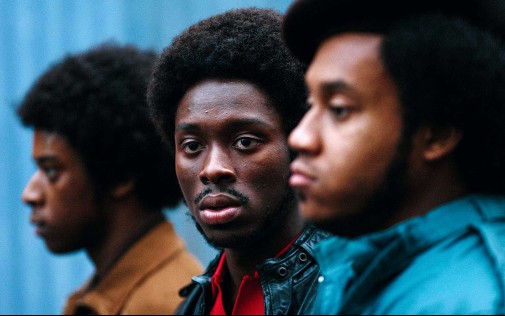
As Christopher James mentioned in his overview of the Limited Series Emmy race, much of the discourse surrounding Small Axe has focused on categorization. Is it TV or cinema? To be perfectly blunt, I don't care. Indeed, it's been pretty disheartening to see how so much energy was spent debating this matter instead of simply appreciating the work. To me, the five Small Axe films are a miracle of audiovisual expression and historical narrative, perchance Steve McQueen's most important masterpiece. When it came time to write these Emmy FYCs, I jumped at the chance of singing the anthology's praise. Honestly, the only problem was singling out just one element to promote.
While I could just as happily have written about Shabier Kirchner's luminous cinematography or the sensuous textures of Jacqueline Durran's costumes, I've decided to focus on the actors…
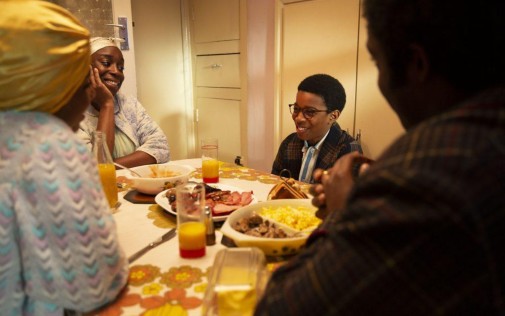
Unlike other projects in contention for the Emmys, the Small Axe anthology has submitted a relatively limited number of performances. Each of the five films has an entirely separate and distinct cast, some of which are pretty sprawling. Regardless of this wealth of options, Amazon Prime has selected only five acting achievements from Steve McQueen's magnum opus. Compared, Mare of Easttown has nine actors in contention, and The Underground Railroad has ten, WandaVision fourteen. Another critical factor is that every Small Axe performer is submitted as supporting, regardless of their leading status within their film.
With all this in consideration, I'm saddened that Steve Toussaint and Sharlene Whyte, who deliver some of the best performances of 2020 independently of the medium, won't have a chance at earning Emmy glory. Still, the quintet in contention is pretty amazing. They are:
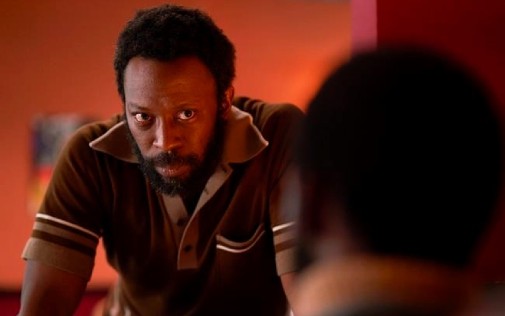
Shaun Parkes and Letitia Wright in MANGROVE
The first film in the Small Axe collection is a dramatization of the landmark trial that, in 1971, officially recognized the racial prejudice within the Metropolitan Police. However, like all pictures in the anthology, this 127-minute historical drama isn't too keen on reducing its characters' existences to a one-dimensional procession of miseries. Focusing on the community of West Indian immigrants in 1970s and 80s London, Small Axe is as humanistic as cinema/TV gets, couching all of its considerations on the specificities of lived experience. Indeed, only the second half of Mangrove is a courtroom drama. Before the lingering shot of a fallen colander signals the violent genre shift, Mangrove is loose and observational, almost shapeless in its painting of a community.
One must consider the structural gambit to appreciate the genius of Shaun Parkes' performance fully. In the role of Frank Crichlow, the owner of the Mangrove restaurant, Parkes constructs a characterization that significantly deviates from history. While the real Crichlow was very politically active before being arrested in a putative riot, neither Parkes nor McQueen's screenplay portray him that way. Instead, he's a man who wants to be left alone but finds himself drawn and dragged to the charge for Black civil rights. Watching him give up on the struggle to be invisible is mesmerizing, effectively gifting Mangrove with a character study unto which it can build the foundations of a dramatic spine.
In many ways, Parkes' is an inward-looking performance, one whose most vital moments are silent. They are the scenes when the camera stops in its tracks and lets his face tell a story of spiritual exhaustion fermenting in a puddle of outrage, rage tempered with great sadness. His haunted eyes have epics to share, tales of survival in the face of police duress, songs of ancient anguish momentarily abated by a judge's word. Juxtaposed to such quiet intensity, Letitia Wright's take on Black Panther leader Altheia Jones-LeCointe shines bright as a scream full of fire and fury. It's an actorly achievement that challenges and complements Parkes' more subdued creation. Take away one of these polarizing energies, and the edifice of Mangrove falls apart.
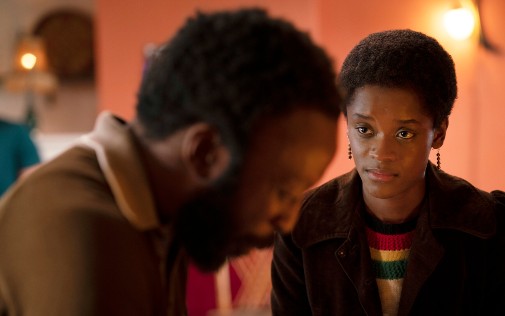
Wright's supporting role is more limited than her leading man. Instead of creating an overall arc, she works on a scene-by-scene basis, conjuring miniature symphonies that slowly illuminate the Altheia that exists beyond the public eye. It's impossible to discuss Letitia Wright's tour-de-force without mentioning the momentous monologue McQueen shoots in a long uninterrupted take. In that scene, whilst shaming and unnerving her company, Wright's Altheia inspires too. Her words are a kiss of hot irons and a breath of life, delivered with constant authority that only wavers once. Her summation of why the Mangrove Nine must fight to the end is a thing of beauty, spat out with such ragged emotion it feels like a painful truth that's been stuck in her throat for a lifetime.
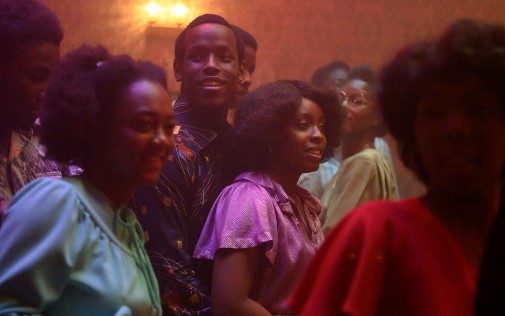
Amarah-Jae St. Aubyn & Micheal Ward in LOVERS ROCK
Music is medicine for the soul, and the meeting of bodies is ecstasy so sublime it's almost godly. This is Lovers Rock, a sensuous masterpiece whose rendition to absolute pleasure doesn't blind to the specificities of community or personhood. For 70 blissful minutes, Steve McQueen opens a portal into a joyous London night in the 1980s, where a party makes the rest of the world melt away. Words can't describe how much this film means to me, how its depiction of festive communion can be a life-saver, a sword with which to fight the dragon of despondency. On the night of last New Year's Eve, my family turned to this trance-like film, re-watching it in hopes of finding a balm during a time of grief. Tears still glistening on our faces, we let the delirious magic of Lovers Rock make us forget everything, if only for a moment. It was cinematic anesthesia.
Intoxicating in all its sensory overload, Lovers Rock is still grounded, carnal, sweatily human. I'm not just talking about the close-ups of bodies dancing in a cramped room. Our guide to the Eden of this house party is an anchor that keeps the piece from floating away in sensualist abstraction. She's Martha, played by Amarah-Jae St. Aubyn. We follow her from dusk till dawn as she evades her religious family and goes with a friend to a house party full of Caribbean music. On the dancefloor, she finds a spark of romance – or is it lust? – in the arms of Micheal Ward's Franklyn. They stay together through the night's events and, when daylight calls for their departure, plans are made for another meeting. It's young love at its most joyous, and it's through the actors that we get to know just how precious that shared elation can be.
St. Aubin telegraphs from early on how Martha is carving a tiny morsel of liberation for herself with this night out. It's not so much rebellion as it's needed relief from a stifling conservative home. Notice how her body language transforms throughout her many interactions, constant social negotiations happening even though neither camera nor performer calls attention to the action. The metamorphosis extends to matters of speech. Depending on who she's talking to, the balance of Caribbean inflection changes. Sometimes she needs to sound more English. Other times, her Jamaican roots are a better look. Through this Black immigrant code-switching, the actress doesn't lose the essence of the character or bury the romantic verve in complex actorly business.
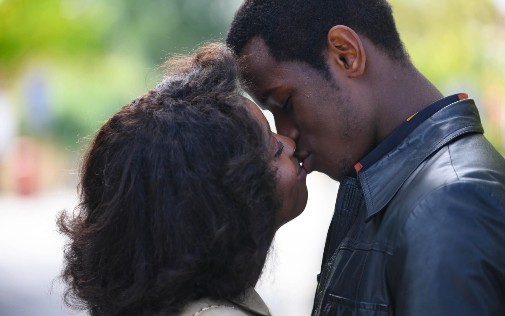
Just as transcendent as her film, St. Aubin makes Martha's emotional journey clear and inescapable, visceral too. Ward doesn't get as much to do as his on-screen romantic partner, though he matches her beat for beat in this tentative dance of blossoming young love. When portraying the miracle of amorous euphoria, male actors are often taken for granted, while their female counterparts get accolades. In this case, as in so many others, the chemistry of the two performers is essential. St. Aubin's spirited work wouldn't function without the support of Ward. He is especially remarkable in Lovers Rock's final passages when the body runs on fumes, but the heart is too enraptured to give in to tiredness. Theirs is a duet of rhapsodic wonder.
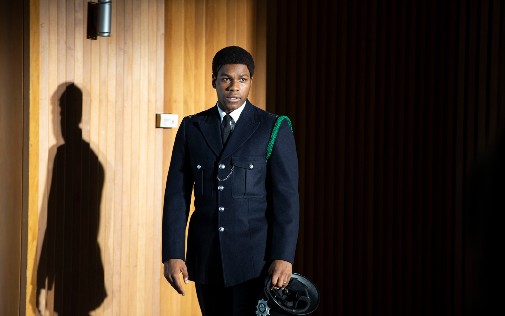
John Boyega in RED, WHITE AND BLUE
In contrast to Mangrove's collective portrait and Lovers Rock's plotless jubilation, Red, White and Blue is laser-focused on one man's righteous fury. Despite its brief runtime of 80 minutes, the Small Ax anthology's third installment is a biopic of real-life policeman Leroy Logan. It isn't, however, an inspirational biopic. That matters a great deal because, instead of extending his purview of Logan's life to the man's later-in-life successes, McQueen and co-writer Courttia Newland have chosen to frame Red, White and Blue around notes of disappointment and hopeless ambivalence. In other words, no part of the film feels as if it's looking at the protagonist's young life as prologue for future greatness or measurable triumph.
As viewers, we're always with him, sharing in his present state of unsureness, indignation, impotent anger. What this means for leading man John Boyega is that his version of Logan isn't one ennobled by historical retrospective. His first few scenes delineate the generational differences that separate Logan from his father, allowing us to grasp who the man is before his mission in life is established. After the patriarch is assaulted by the police, a common occurrence in the Logan family life, Leroy decides he will try to fix the rotten institution from the inside out. He drops a promising career as a research scientist and enlists to be part of the police force. One might balk at the briskness with which decisions are made if not for the actor's bullish commitment to demonstrate Leroy's determination.
In spite of such affirmations, Boyega's performance, not unlike Parkes, works best at suggesting the inner turmoil beneath a stoic surface. Only the star of Red, White and Blue doesn't approach the role as a continuum of clamped-down emotion. Instead, the scenes play out as little dramas that never manifest outside the actor's tense frame. Whether dealing with racist colleagues or an uncertain family dynamic, Boyega tells us all we need to know by the effortful ways in which Leroy allows his spiting revulsion to subside into controlled contempt. Notice how he diffuses a fiery argument with unexpected levity, how little weight he puts into some portentous lines but then declares something inane with the strength of his whole body.
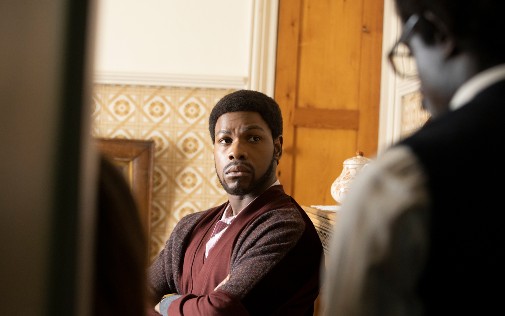
In many ways, the third chapter in Small Axe is the narrative of someone finding their way through an impossible task. To reform the entire British police force and solve centuries of internalized racism is too daunting a task for one man, but Boyega's Leroy stubbornly holds on to optimism as a life raft. When he slips and starts drowning, the despair that the actor lets consume his frame is doubly painful to behold. Better yet, his chemistry with Steve Toussaint, in the role of the Logan pater familias, is terrific. Their last scene together is some of the best acting you'll get to see this year. Or any year, really. The pair's complicated conversations are the center of Red, White and Blue and, even as this remains my least favorite of the Small Axe films, the actors make it work.
In summation, they all deserve some Emmy gold. If none of the individual actors get recognized, I hope that Small Axe can, at the very least, nab an Outstanding Casting trophy. It deserves that and much more.
Small Axe is streaming on Amazon Prime.



Reader Comments (10)
I think it’s the actual Emmy category that might be the problem. A limited series that is 6-10 hours long is just a different form of storytelling than an anthology with short stand alone episodes/films. Comparing the two is like apples/oranges and it feels wrong to have them in the same category to me. It also creates the problem of John Boyega competing in supporting actor when he is inarguably the only Lead role in the Red White and Blue film and it will be even more absurd than the oscars! One of the things that works so well about TV is that you are able to fall in love with the characters over a longer period of time and regardless of the technical merit of the filmmaking in Small Axe, It’s not able to develop it’s characters over the same amount of time which may hurt it at the emmys. I think it’s going to have a hard time getting nominations outside of a directing nom for Steve McQueen himself. Thanks for your article!
Honestly, given how Ethan Hawke looks to be cake-walking to a win in the Lead Actor Miniseries category, one imagines if John Boyega had run Lead, he might well have won the whole thing - making more room in these categories for (the tremendous) Shaun Parkes, Malachi Kirby/Jack Lowden from Mangrove, or Steve Toussaint from Red, White, and Blue.
Wasn't a fan of the show as a whole so much as the sum of its parts, but every single one of its actors that could get any recognition would be supremely deserving.
Boyega is a lead.
And I think Grant might actually win the leading Emmy.
Hope to see Small Axe recognized across the board. Shaun Parkes gave one of the most memorable performances of last year in Mangrove, if only he had qualified for the Oscars.
Wish the Emmys would consider a massive restructure. My pipe dream would be to see them do away with Limited Series (TV movies can stay) and add Sci-Fi/Fantasy categories and embrace genre more, and stop getting hung up on the format. What is WandaVision doing competing against I May Destroy You while The Mandalorian competes against the The Crown?
I do care about categorization and I think Small Axe is a great miniseries as it was intended to be. Sorry LAFCA,
There's a stoy going on about Boyega going bananas in a film set that might hurt his chances. I think he's a very charismatic lead, in a Denzel Washington way, but I prefer Shaun Parkes and I absolutel love that Bafta recognized Malachi Kirby
Parker: I do think they maybe need a third Series category (for ongoing shows), but getting rid of a dedicated Limited Series category? Nope. Not at this point. A category ENTIRELY for sci-fi and fantasy genre stuff? Yeah, also don't do that. The Mandalorian competing against The Crown might be bizarre, but The Handmaid's Tale or Westworld NOT competing against The Crown would also be bizarre. My choices for a three category set-up for ongoing shows? Three picks: Drama, Dramedy and Comedy OR Drama, Comedy and Action (Think The Mandalorian vs. Mayans M.C. or, going back a couple decades, Smallville vs. The Shield) OR Serial Drama, Episodic Drama and Comedy. None of those feature a stupid category that is just out and out ghettoizing low-action genre fare. (My preference of those three would be Drama, Comedy and Action, for the record, but I'd be at least okay with the other two.)
I hope Letitia Wright is nominated and sad Malachi Kirby isn’t being campaigned.
This show was so good, so special. I've only seen half of UNDERGROUND RAILROAD, but so far, I'd have to say I like this one much better. I hope it really does well.
Lover's Rock is a masterpiece, but Small Axe as a whole is not.
Ahh, thanks for this reminder of the wonder that is SMALL AXE. It's a masterpiece of directing - collectively, my favorite work from Steve McQueen, whose other work, while brilliant, tends to leave me cold - but the acting is indeed very strong.
I'm with you on both Toussaint and Whyte, especially the former. Boyega was excellent, but I think Toussaint was even better.
I really hope this series gets the Emmy recognition it deserves.